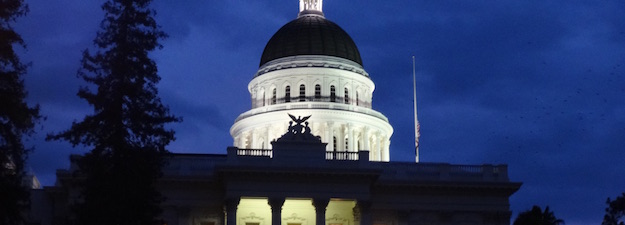
A plan for a major overhaul of the California Public Utilities Commission was announced yesterday by governor Jerry Brown and three legislators – Bay Area senators Mark Leno and Jerry Hill, and LA assemblyman Mike Gatto – who have been pushing for significant changes, even to the point of getting rid of it altogether (h/t to Regina Costa at TURN for the heads up).
The first item on the long list is to get the CPUC out of the business of policing some transportation services, most notably ride sharing companies like Uber and Lyft, but also certain bus companies and other land and water conveyances. Those jobs would be turned over to the department of motor vehicles or the highway patrol or other organisations under the umbrella of the California transportation agency.
Telecommunications regulation is also targeted. According to a press release from Gatto’s office, the plan calls for an assessment of “reassigning telecommunications governance by January 1, 2018”, but isn’t specific about who would be responsible for it, or what would happen with the report once it’s complete. The Sacramento Bee reports that Gatto is also dropping his proposal to write the CPUC out of the California constitution.
Other changes include tightening rules regarding conversations between utilities and commissioners and key staff about pending matters, allow local governments more scope to get involved in CPUC proceedings, open up more opportunities for public comment and speeding up the commission’s work.
So far, all that’s been released is an outline of the changes. The details will come as the three legislators, and perhaps others, put the new language into bills. No timetable was set, except a reference to “the months ahead”.
Correction: earlier, I wrote that the CPUC overhaul plan would put the commission out of the business of “regulating” transportation companies. I’ve changed that to “policing”. As released by the governor’s office, the plan would only affect “implementation and enforcement” of rules for a number of transportation services, including ride sharing platfroms like Lyft and Uber. In other words, the commission would still make the rules, but the CHP or DMV (or another department) would be responsible for putting those rules into effect. That’s the plain reading of it at this point, anyway.
